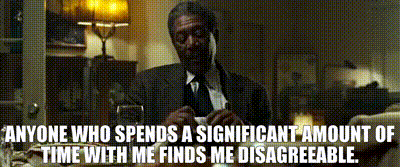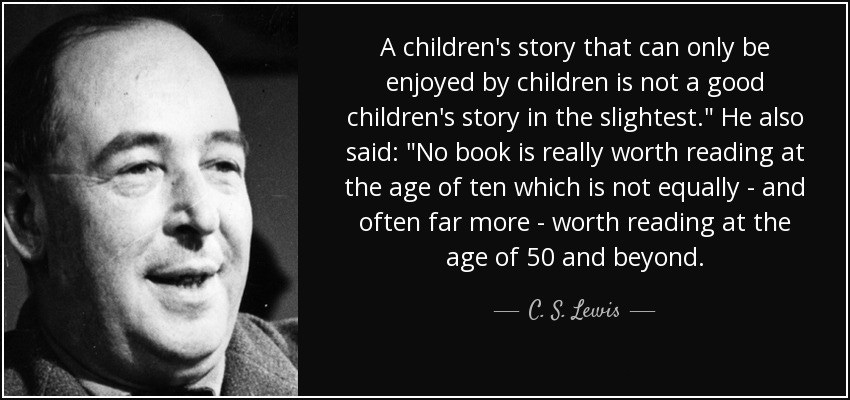I’m working on a post about video game movies, but haven’t quite finished it up. Instead, here are a few articles and videos that are complete. While I think they all give food for thought, you might not be surprised to learn that I don’t totally agree with all of them.
Disagreeing with the Judges
Some friends of mine run an annual film contest called the Collaboration Filmmaker Challenge. There are a lot of competitions/festivals where you’re given two weeks to make a film, but the CFC is different. You actually have to collaborate with others in the contest in order to complete.
It’s a lot of fun, and some of the movies actually turn out pretty great. You don’t even have to be in Los Angeles to participate. Our friends at even have a discount code for their readers: FilmSquad2025. I totally recommend signing up for CFC if you’re interested in shooting a movie with new collaborators.
Although I can’t make it this year, I’ve done it in the past and really enjoyed the process. I was particularly proud of the one I directed in 2019, Danse Macabre.1 It didn’t make the cut, but after the screening, one of the judges told me it was his favorite that year. The other judges ruled it out because it was, they said, “a little extreme.” Which is fair, because of all the sex and violence in it.
If you’re just starting out in film, you probably shouldn’t jump into the deep end with a complex story, lots of characters, multiple locations, etc. Sometimes, a good exercise is to just shoot a bunch of B-roll and see if you can cut it together into something interesting with little time and no resources—
Speaking of children’s stories…
Kids’ Stuff
wrote an article called, “Why Americans Think Cartoons Are for Kids,” in which he outlines how American animation and Japanese anime developed along diverging paths. He’s got some good insights, but I take issue with this passage:American audiences reflexively treat animation as kids’ stuff, even when presented with obvious counterexamples. It’s why The Iron Giant underperformed at the box office. It’s why Batman: The Animated Series had to disguise its frequently deep themes. It’s why The Simpsons had to pass off its social commentary as goofball satire.
Iron Giant underperformed because it had bad marketing and a bad release date. B:TAS didn’t hide it’s themes; it’s where a lot of us learned important life lessons. But both of those are targeted at children, and were generally accepted as children’s entertainment. And there’s nothing wrong with that.
But the Simpsons is adult animation. It’s not “passing off” social commentary. Everyone knew what it was; nobody missed it. The actual interesting thing about every American animated series aimed at adults2 is that they’re all—from The Simpsons to Family Guy, South Park to Rick and Morty—comedies.
So no, most Americans don’t believe animation is always “kid stuff.” Children’s animation can be serious and popular, cf. Batman: The Animated Series. But American adults just don’t seem to be interested in cartoon drama. (Although Love, Death, and Robots is into season 4, so it must have at least some following.)
What I’m saying is, the American view of animation is slightly more nuanced than Niemeir gives them credit for. We tend to think of cartoons as for kids or comedy. And I suspect part of the reason is something he skipped over (or never thought about) in his article—Hollywood can create spectacle without resorting to animation. We have big enough budgets to make the Death Star explode or dinosaurs roam the Earth again. Even gathering a large cast was difficult for Japanese filmmakers after World War II. Anime allowed for epic fantasy and sci-fi on a budget.
Further, I don’t think it’s all Walt Disney’s fault. After all, he produced Fantasia as a new form of entertainment, it definitely wasn’t for kids.
Media Literacy Redux
As I’ve said before, People Who Complain About Media Illiteracy are Just the Worst. And for some reason, they’re very afraid of Zack Snyder fans (if any of those still exist).
I typically find this guy’s videos funny, but this particular video seems to be fighting a strawman. How many people are actually “upset” by this joke in the Superman trailer? But what’s really galling is that he doesn’t seem to understand why the joke is confusing. At around 6:16, he shows this screenshot:
And his response is “it’s just a joke.” The MeDiA LiTeRaCy guy’s explanation is it’s just a joke. I’m sorry, no. Unless you’re making a wacky cartoon comedy, where anything can happen and nothing matters, the joke has to make sense in the context of the world and characters.
Which I think is this YouTuber’s problem—he makes wacky cartoon comedy where anything can happen and nothing matters. Everything he does is so meta and up its own ass with self-referentiality, he doesn’t understand the tone of an adventure film.
I get it, nobody likes dissecting jokes. My political comedy video is criminally under-viewed because no one wants to dissect the frog.
Look, I trust James Gunn enough that I believe this weird robot exchange will make sense in the context of the movie. It’s not going to wind up like that stupid “beach off” joke in Barbie.
But right now, as is, the joke doesn’t make sense in the trailer. I’m still going to see Superman the day it comes out in theaters.
Back to Theaters
Last week, I mentioned
’s series on the death of cinemas. Part 3 came out this week, and, well, I think it’s a bit misguided.Modern fitness culture reframed uncomfortable physical exertion as desirable, necessary growth. Therapy reframed uncomfortable emotional excavation the same way. In both, we accept temporary discomfort for long-term gain.
Cultural fitness thrives in identical ways. It requires spaces that optimize for focus rather than distraction, for complexity rather than simplification, for collective experience rather than isolated consumption.
And cinemas were created for this exact purpose.
So here's my grand idea, as radical as it is necessary: what if we reimagined cinema spaces as cultural gyms? Not just venues that show movies, but institutions expressly designed to strengthen our meaning-making muscles—as deliberately as Equinox sculpts abs or therapists rebuild neural pathways?
That doesn’t sound fun at all.
Strangely, it’s the same mistake Moviepass made—thinking going to the movies could be like going to the gym. The Moviepass founders believed people would sign up for a subscription movie service and then not use it, similar to a gym.
The thing is, most people don’t like going to the gym. They work out to accomplish some other goal—get fit, look good, stay young, whatever. It’s a means to an end.
Working out at the gym is a means to an end; going to the movies is an end in itself. As Bishop Barron says, the highest things are done for their own sake:
Instead of telling audiences what they should be doing, theaters need to address what needs they can fulfill in providing a space for art and entertainment. Rory Sutherland offers an interesting approach—don’t look at what your competition (Netflix, Playstation, etc) are doing well, but rather what they do badly.
Most modern entertainment is isolating; movies are the only communal entertainment left that’s still remotely affordable. That’s what theaters need to focus on.
Odds and Ends
These videos kinda relate to some of the discussions above, but I couldn’t fit them in, so I’m just gonna cram them all together here rather than in footnotes nobody reads.
My daughter loves Animaniacs, a comedic cartoon that can be appreciated by both children and adults alike. She particularly enjoys Dot’s Poetry Corner, so we’ve been watching this compilation over and over lately—
And here’s another funny cartoon about our new pope—
I love hearing about early versions of movies, especially when they sound better than the one we got—
And lastly, here’s some political comedy, Trek vs Wars.
Anyway, what do you think? Am I on to something, or are the articles I reacting to more correct? Or are we both wrong? Leave a comment, and don’t forget to hit the like button and/or share this post.
I talked a little bit about the origins of Danse in an old post about aspect ratios.
Say that three times fast.







Thanks for this, Matt. I'm intrigued by your response, especially the framing that I'm telling audiences what they should be doing. I wonder if you could help me understand where in this excerpt you shared I place responsibility on individual moviegoers? From my perspective, I'm really focusing on institutional transformation - how theaters (alongside industry regulation, film studios etc) can evolve to better serve existing audiences, rather than suggesting audiences need to change their behavior.
I think your gym reference might actually support what I'm trying to say. You mention most people don't particularly enjoy going to the gym, seeing it mainly as a means to an end. But haven't we seen modern fitness studios completely transform that narrative? The rise of places like Peloton, climbing gyms, and boutique pilates studios happened because the industry realized fitness can be genuinely enjoyable when designed thoughtfully around what different communities want and need.
These successful fitness concepts have managed to turn exercise from something that feels like obligation into an experience people genuinely look forward to. They didn't do this by somehow convincing people to "like working out more" - they reimagined the entire experience to connect with different audience segments. I see similar possibilities for cinema. It's how perspectives on therapy and mental wellbeing have evolved in recent years too.
I think the challenge isn't that audiences only want pure entertainment (we already have plenty of options for that, yet theaters continue struggling). Perhaps it's more that the current theatrical model tends to treat all films and all audiences in roughly the same way, creating experiences that don't fully resonate with the diverse ways people connect with movies. When I suggest cinemas could function more like cultural gyms, I'm really imagining more choice and personalization, not less.
Final thought: I wonder if there's an unnecessary division being created between meaning and enjoyment here? The theatrical experiences that seem to be thriving today suggest these qualities often enhance each other. Just ask anyone who's experienced a Tarantino marathon at Alamo Drafthouse or a Studio Ghibli retrospective at their local arthouse. They're not suffering through some cultural obligation - they're having the time of their lives. I appreciate you engaging with these ideas - conversations like this help us all think more deeply about the future of theatrical experiences that clearly matter to both of us.